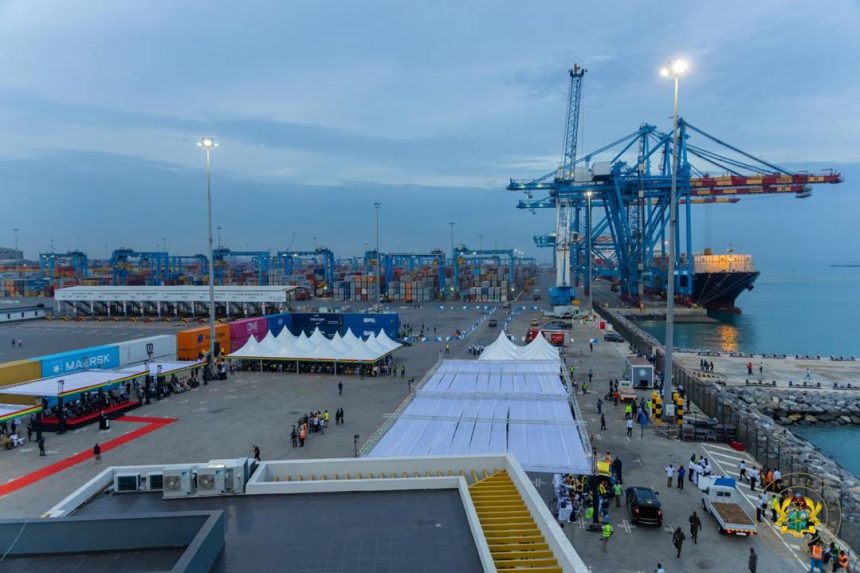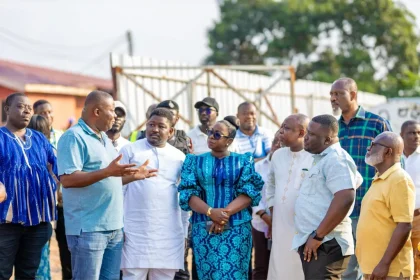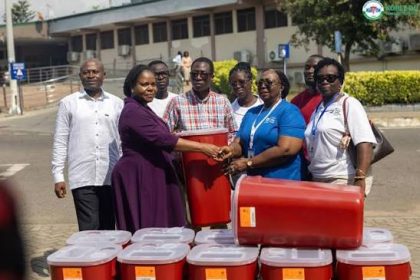President John Dramani Mahama announced that a private investor has proposed to establish a major ferry service operating from the port city of Tema, which would transport vehicles, passengers and goods between Ghana and neighbouring West African states.
Speaking at the commissioning of Phases 1 and 2 of the Tema Port expansion project, the President said the proposed ferries “will carry vehicles, passengers and goods … If we have that service, it will help supplement sending cargo always by road. You can go by ferry with your goods to Nigeria.”
Transport ministry officials say the announcement reflects the government’s aim to deepen regional trade, relieve pressure on the road transport system and strengthen Ghana’s logistics role within ECOWAS.
According to the President, the project will be based at Tema and the government “will provide all the encouragement needed to establish this service and enhance the exchange of goods among our people.”
President Mahama described the ferry service as part of the broader vision for the expanded Tema Port to function as a modern “teleport” or regional gateway.
He noted that passengers “and trucks” should one day be able to move seamlessly by sea across West Africa rather than along long and vulnerable over-land routes.
The port expansion itself increases capacity dramatically and, in his words, positions Ghana as a key maritime link for the region.
Logistics and trade experts say the potential benefits of the ferry service are many. Not only would it reduce the cost and risk of road transport—particularly for cargo headed toward Nigeria, Togo, Benin or Sierra Leone—but it may open up opportunities for passenger travel by sea, tourism, and inter-country vehicle transit.
It would also help decongest highways, cut wear and tear, reduce fuel costs and potentially lower freight charges.
However, details remain to be clarified. The exact routes, frequency of service, size of vessels, cargo and passenger capacity, as well as the timeframe for launch, have not yet been published.
The investor and government must complete feasibility studies, regulatory approvals, port accommodations, safety standards, customs procedures and coordination with neighbouring countries.
Some analysts caution that for the project to succeed the government must ensure strong maritime infrastructure, harmonised cross-border regulations and reliable scheduling.
Stakeholders in the transport and trade sectors welcomed the announcement.
A representative of the shipping industry commented that “if implemented, this ferry link could transform how goods move across West Africa.” Meanwhile, trade-advocacy groups pointed out that the integration of sea-based transport complements the continental ambitions of the African Continental Free Trade Area (AfCFTA), of which Ghana is a key advocate.
In the meantime, the government said it will continue to work to make the Tema Port expansion’s terminals fully operational and attractive to investors. With Ghana’s logistics sector gaining attention, the timing of the ferry project is seen by many as timely: road congestion is worsening, regional trade volumes are growing, and maritime routes remain under-utilised.
For now, the announcement is at the planning stage, but its ambition is clear: Ghana intends to move from being primarily a road-bound logistics hub to serving as a maritime gateway for West Africa.
If realised, the ferry service would mark a significant shift in regional connectivity, trade logistics and transport infrastructure across the sub-region.






